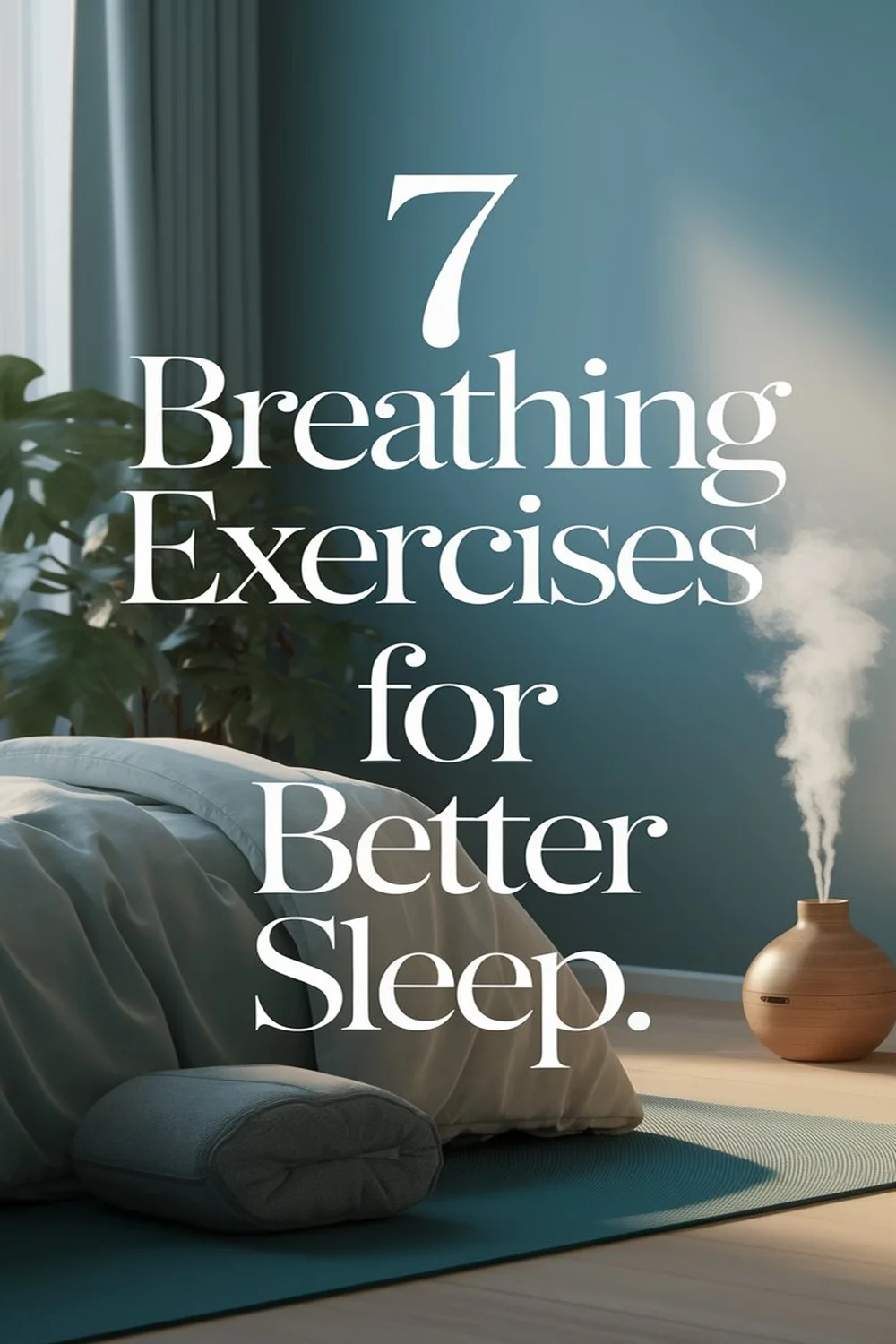To improve your sleep hygiene, establish a consistent sleep schedule and create a relaxing bedtime routine. Optimize your sleep environment by controlling light and temperature. Limit screen time before bed, monitor your diet, and avoid stimulants in the evening. Prioritize natural light exposure during the day, and use sleep aids wisely, only when necessary. If sleep issues persist, don’t hesitate to seek professional help. Discover more about effective strategies for restful nights and energized days.
Establish a Consistent Sleep Schedule
When you establish a consistent sleep schedule, you’re not just regulating your bedtime; you’re also nurturing your body’s natural circadian rhythms. These rhythms play a vital role in determining your sleep-wake cycle, affecting everything from hormone release to metabolic processes. By going to bed and waking up at the same time every day, even on weekends, you’re reinforcing your body’s internal clock. This leads to improved sleep quality and daytime alertness. You might find that you fall asleep faster and wake up feeling more refreshed. It’s about creating a sense of balance that reduces stress and enhances overall well-being. So, commit to this routine, and you could reveal more restorative sleep and better daily functioning.
Create a Relaxing Bedtime Routine
Incorporating a relaxing bedtime routine can greatly enhance your ability to wind down and prepare for sleep. Engaging in calming activities signals your body that it’s time to shift to rest. Aim for consistency to establish a reliable pattern that supports your sleep health. Consider trying the following:
- Gentle stretching or yoga: This can help alleviate tension and promote relaxation.
- Reading a book: Choose something light or inspiring to distract your mind from daily stresses.
- Mindfulness or meditation: These techniques can heighten your awareness and reduce anxiety, making it easier to drift off.
Optimize Your Sleep Environment
To create an ideal sleep environment, it is vital to focus on factors like light, noise, and temperature, as they considerably impact your ability to fall and stay asleep. Start by keeping your bedroom dark; consider blackout curtains or an eye mask. Aim for a cool room, ideally between 60-67°F (15-19°C), since lower temperatures promote deeper sleep. Reducing noise is also significant; use earplugs or a white noise machine to mask disruptive sounds. Invest in comfortable bedding and a supportive mattress tailored to your sleeping position. Finally, eliminate clutter to foster a serene atmosphere. By prioritizing these elements, you’ll enhance your sleep quality and wake up feeling refreshed and rejuvenated. Remember, your environment plays an important role in your overall well-being.
Limit Exposure to Screens Before Bed
As you wind down for the night, limiting your exposure to screens can greatly improve your sleep quality. The blue light emitted by phones, tablets, and computers interferes with melatonin production, making it harder for you to fall asleep. To enhance your sleep hygiene, consider the following strategies:
- Set a digital curfew by turning off screens at least an hour before bedtime.
- Substitute screen time with calming activities, like reading a book or practicing mindfulness.
- Create a tech-free zone in your bedroom to minimize distractions.
Monitor Your Diet and Drink Choices
While winding down and reducing screen time are important for better sleep, what you consume in the hours leading up to bedtime plays a significant role in your sleep quality, too. Caffeine can disrupt your sleep cycle, so limit any caffeinated beverages after mid-afternoon. Additionally, heavy meals just before bed can cause discomfort, making it harder for you to fall asleep. Opt for lighter snacks, if you’re hungry. Alcohol might initially make you feel drowsy, but it can lead to disrupted sleep later in the night. Hydration is essential, but avoid excessive fluids right before bed to minimize nighttime trips to the bathroom. By monitoring your diet and drink choices, you create a more favorable environment for restorative sleep.
Incorporate Regular Physical Activity
Regular physical activity is a powerful ally in promoting better sleep. Engaging in regular exercise helps regulate your body’s internal clock and improves the quality of your sleep. Aim for at least 150 minutes of moderate activity each week, and try to schedule workouts earlier in the day to avoid disrupting your sleep cycle. Consistency is key, so choose activities you enjoy.
- Walking, jogging, or cycling can elevate your heart rate.
- Strength training builds muscle and boosts metabolism.
- Yoga or stretching promotes relaxation and flexibility.
Incorporating these activities into your routine not only enhances your physical health but also leads to deeper, more restorative sleep. Remember, even small increases in activity can yield significant benefits for your nightly rest.
Manage Stress and Anxiety
Managing stress and anxiety is crucial for achieving restful sleep, especially since heightened stress levels can lead to racing thoughts and restlessness at night. To effectively manage these emotions, try incorporating mindfulness techniques, such as deep breathing or meditation, into your daily routine. These practices help calm your mind and reduce physiological stress responses. Additionally, setting aside time for relaxation and engaging in activities you enjoy can greatly improve your mood. Consider journaling to process your feelings and declutter your thoughts before bed. Limiting caffeine and screen time in the evening may also lower anxiety levels, promoting a more serene mindset. By proactively addressing stress and anxiety, you set the stage for more restorative sleep throughout the night.
Invest in a Comfortable Mattress and Pillows
Investing in a comfortable mattress and pillows is essential for enhancing your sleep quality, as inadequate support can lead to discomfort and restless nights. Your body’s alignment and support during sleep greatly influence your overall well-being. Choosing the right mattress and pillows tailored to your sleeping position helps reduce pressure points, leading to deeper sleep.
Here are some factors to reflect on:
- Material: Look for materials that provide both support and comfort, like memory foam or latex.
- Firmness: Opt for a firmness level that suits your personal preference and sleeping style—firmness affects spinal alignment.
- Replacement: Replace your mattress and pillows every 7-10 years, or earlier if they show signs of wear.
Prioritizing these elements can transform your sleep experience.
Keep Your Bedroom Dark and Cool
A well-chosen mattress and pillows can set the foundation for great sleep, but the environment of your bedroom plays an equally significant role. Keeping your bedroom dark is vital; darkness signals your brain to produce melatonin, the hormone that regulates sleep. Consider using blackout curtains or an eye mask to block any intrusive light.
Equally important is the temperature; a cool room, ideally between 60-67°F (15-19°C), fosters restful sleep. This temperature range helps lower your body’s core temperature, promoting deeper sleep stages.
Utilizing a fan or air conditioning can enhance cooling while providing white noise to drown out disturbing sounds. By optimizing both darkness and coolness, you’ll create a more comfortable sleep environment conducive to restorative rest.
Limit Naps to Short Durations
Although naps can provide a quick boost of energy during the day, limiting their duration is essential for maintaining healthy sleep patterns. Long naps can interfere with your nighttime sleep, making it harder to fall asleep or stay asleep. To reap the benefits of napping while avoiding sleep disruptions, try to keep your naps shorter. Here are some tips:
- Aim for 20-30 minutes to feel refreshed without entering deep sleep.
- Schedule naps earlier in the day, ideally before 3 p.m.
- Use naps as a tool for recovery, especially if you didn’t sleep well the night before.
Practice Relaxation Techniques
To enhance your sleep quality, practicing relaxation techniques can considerably reduce stress and prepare your mind and body for rest. Techniques such as deep breathing, progressive muscle relaxation, or guided imagery can effectively promote calmness. These methods slow your heart rate and reduce cortisol levels, making it easier to shift into sleep. Try setting aside 15-30 minutes before bed to implement these practices. For example, focus on inhaling deeply for a count of four, holding for four, and exhaling for four. This rhythmic approach not only helps you unwind but also signals your brain that it’s time to sleep. By integrating relaxation techniques into your nighttime routine, you’re fostering a conducive environment for restorative sleep.
Avoid Stimulants in the Evening
Engaging in relaxation techniques can help prepare your body for sleep, but the evening environment also plays a significant role in determining sleep quality. One essential aspect of this environment is avoiding stimulants. Consuming substances like caffeine or nicotine too close to bedtime can disrupt your ability to fall and stay asleep.
Consider making these adjustments:
- Limit caffeine intake after 2 PM.
- Avoid nicotine consumption in the evening.
- Stay clear of energy drinks before bed.
Recommended Items
Discover our top picks for enhancing your sleep quality—let’s dive in!
Exposure to Natural Light During the Day
When you prioritize exposure to natural light during the day, you help regulate your body’s internal clock, enhancing your overall sleep quality. Natural light boosts serotonin production, improving your mood and alertness. Aim for at least 30 minutes of outdoor light exposure each day, especially in the morning.
| Benefits of Natural Light | Impact on Sleep Quality |
|---|---|
| Improves mood | Reduces insomnia |
| Boosts alertness | Enhances circadian rhythm |
| Increases productivity | Promotes relaxation |
| Supports mental health | Aids in falling asleep |
15 Ways to Improve Your Sleep Hygiene
Use Sleep Aids Wisely
How can you make the most of sleep aids without becoming overly reliant on them? It’s crucial to use them strategically. First, consider non-pharmaceutical options like melatonin or herbal supplements, as they can help regulate your sleep-wake cycle without heavy side effects. Second, establish a regular sleep schedule, using aids only when needed, to avoid disrupting your natural rhythms. Finally, create a calming bedtime routine to enhance the effects of sleep aids, focusing on relaxation techniques.
- Limit usage to occasional sleepless nights
- Combine aids with healthy sleep practices
- Monitor how you feel after using them
Seek Professional Help if Needed
If sleep problems persist despite your best efforts to improve your sleep hygiene, seeking professional help may be vital. A sleep specialist can evaluate your situation, identifying underlying conditions like insomnia, sleep apnea, or anxiety disorders that might hinder your ability to rest well. They may recommend treatments ranging from cognitive behavioral therapy to medications, tailored to your specific needs. Understanding that sleep issues are common and can considerably affect your quality of life is essential. By reaching out for help, you’re taking a proactive step toward better sleep and overall health. Remember, addressing these challenges with a professional can lead to lasting improvements, helping you regain the restorative sleep you deserve. Don’t hesitate to seek support when needed.











